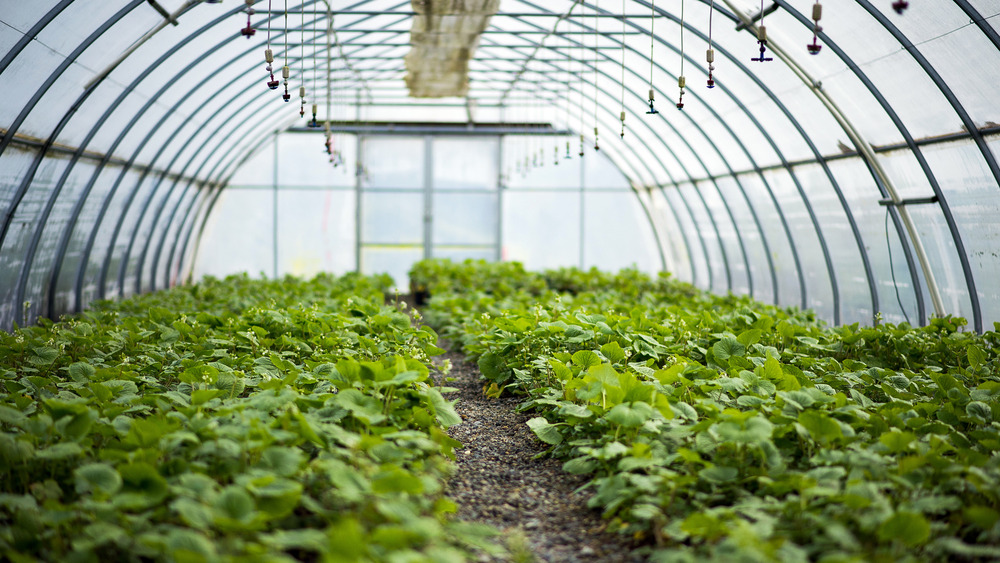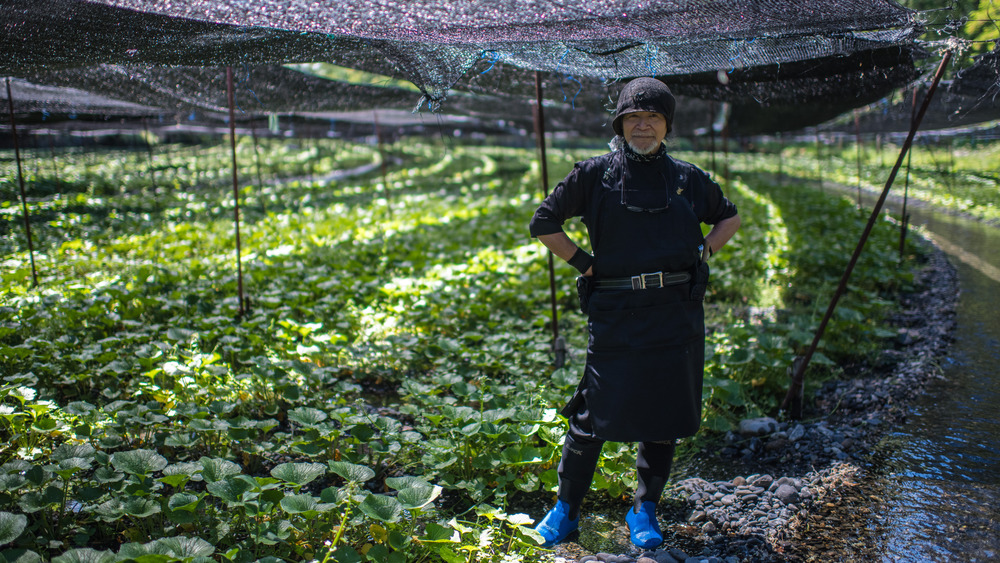The Reason Some Wasabi Growers Keep Their Farms In Secret Locations
What's the reason some wasabi growers keep their farms in secret locations? Halfway through Buckteeth Magazine's profile of wasabi growers on the West Coast of North America, Dr. Brian Oates, founder of Pacific Coast Wasabi, explains "We don't allow visitors. The growing method is all a trade secret. We do that because if we patented it we would have to tell everyone how we do it." Oates added that this approach is similar to that of Coca-Cola, keeping the recipe as secret as possible.
Nor is this the only time Dr. Oates has discussed the secret formula of his wasabi cultivation process. When the BBC profiled him in 2014, they too included a line about how his method is a trade secret. However, for $70,000, a potential grower could license the method for growing wasabi within greenhouses from Dr. Oates. While one aspect of this approach allows for the company to grow with a franchise model, the more important reason is that growing wasabi is a lucrative business, especially outside of Japan where the shorter shipping distance ensures a fresher product.
Wasabi is a green gold
In their piece on wasabi farming in Japan, Barron's refers to wasabi as a "green gold." That is because even in Japan, where wasabi grows naturally, the conditions for its cultivation are exacting. "The most important requirement is crystal-clear water, in abundance," grower Yoshihiro Shioya states before also listing that the temperature has to stay constant year round and that water has to flow over the plant constantly.
These aren't conditions that are terribly easy to replicate; that's what, according to a Bustle piece from 2017, led to prices of up to $250 per kilogram, or 2.2 pounds. In the Barron's piece, one chef they interview, Toshiya Matsushita, goes through a wasabi root a day and spends over $700 a month on the wasabi. For this reason, most wasabi one does have in sushi restaurants is actually horseradish colored green. It's also for this reason that Dr. Oates, having perfected a technique to cultivate wasabi in a climate not native to it, is determined not to let anyone else know about his method without first forcing them to work for him.

